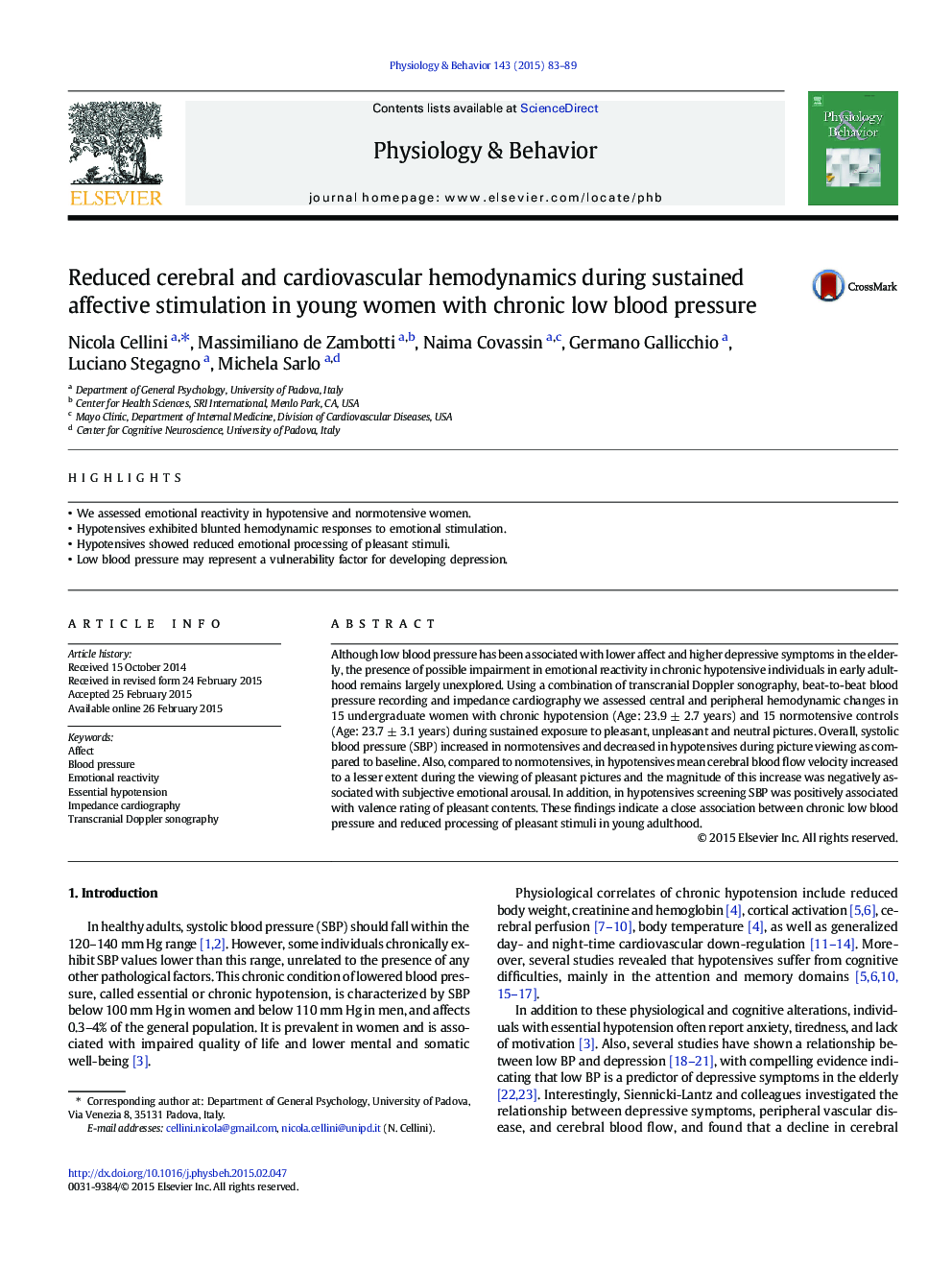| Article ID | Journal | Published Year | Pages | File Type |
|---|---|---|---|---|
| 5923711 | Physiology & Behavior | 2015 | 7 Pages |
â¢We assessed emotional reactivity in hypotensive and normotensive women.â¢Hypotensives exhibited blunted hemodynamic responses to emotional stimulation.â¢Hypotensives showed reduced emotional processing of pleasant stimuli.â¢Low blood pressure may represent a vulnerability factor for developing depression.
Although low blood pressure has been associated with lower affect and higher depressive symptoms in the elderly, the presence of possible impairment in emotional reactivity in chronic hypotensive individuals in early adulthood remains largely unexplored. Using a combination of transcranial Doppler sonography, beat-to-beat blood pressure recording and impedance cardiography we assessed central and peripheral hemodynamic changes in 15 undergraduate women with chronic hypotension (Age: 23.9 ± 2.7 years) and 15 normotensive controls (Age: 23.7 ± 3.1 years) during sustained exposure to pleasant, unpleasant and neutral pictures. Overall, systolic blood pressure (SBP) increased in normotensives and decreased in hypotensives during picture viewing as compared to baseline. Also, compared to normotensives, in hypotensives mean cerebral blood flow velocity increased to a lesser extent during the viewing of pleasant pictures and the magnitude of this increase was negatively associated with subjective emotional arousal. In addition, in hypotensives screening SBP was positively associated with valence rating of pleasant contents. These findings indicate a close association between chronic low blood pressure and reduced processing of pleasant stimuli in young adulthood.
